Music
Staff
Subject Coordinator Mrs J. Abraham
Curriculum
GCSE
The Music Department is rich in nourishing opportunities for young musicians and, whether they are pianists, singers, instrumentalists or composers, the GCSE course at Lurgan College offers a wonderfully diverse and colourful experience, whilst providing a solid grounding for pupils to pursue their musical studies to Advanced Level in Years 13 and 14.
GCSE Music has 3 components:
Composing and Appraising 30%
Performing and Appraising 35%
Listening and Appraising 35%
Composing and Appraising
Students compose two pieces of music, one of which they write in response to a pre-release stimulus. They record their compositions and provide a score, a lead sheet or a written account of their work. Students will be encouraged to make full use of our amply resourced music technology facilities in the Mac Suite.
Performing and Appraising
One solo and one ensemble performance will be examined by a visiting examiner in April of Year 12. Throughout the course of study, GCSE pupils can enjoy the experience of learning a new instrument, if they desire, and many willingly participate in a variety of school ensembles – Girls’ Choir, Chamber Choir, Band, Jazz Group, Vocal and Instrumental Trios and Quartets, performing at school, public and private engagements. As part of their ensemble, GCSE pupils will be collaborating with pupils in the senior music classes.
Listening and Appraising
Students build on the knowledge, understanding and appreciation of music gained through composition and performance. They develop their understanding of the relationship between music and its contexts. Students listen to and appraise familiar and unfamiliar music by a range of composers, both male and female, within the four Areas of Study:
- Western Classical Music 1600–1910
- Film Music
- Musical Traditions of Ireland
- Popular Music 1980–present day
AS/A2
The fundamental nature of music rests in its ability to evoke a personal response through active involvement as composer, performer or audience member. The raw materials of sound are expressively honed and fashioned in myriad ways to reflect a wide range of cultures and traditions across time and place. These two factors form the most significant aspects of the study of CCEA A level Music within the AS and A2 exams.
AS Music
Unit 1 Solo performance and viva voce. (13% of A level).
This should be 5-7 minutes in length and a minimum standard of Grade 4.
Unit 2 Composition (13% of A level)
This should be 1½ to 2½ minutes in length and be accompanied by a written commentary with a maximum word limit of 1,000 words.
Unit 3 Test of Aural Perception and Written Examination (14% of A level)
This will be assessed through detailed analysis and study of set pieces of music under the headings; Music for Orchestra 1700-1990, Sacred Vocal Music (Anthems), and Secular Vocal Music (Musicals).
A2 Music
Unit 1 Solo performance and viva voce.
This should be 8 to 10 minutes in length and a minimum of Grade 5 standard.
Unit 2 Composition
This should be 2 to 3 minutes in length and be accompanied by a written commentary of no more than 1200 words.
Unit 3 Test of Aural Perception and Written Examination
This will be assessed through detailed analysis and study of set pieces of music under the headings; Music for Orchestra in the Twentieth Century; Sacred Vocal Music (Mass/Requiem Mass) and Secular Vocal Music (1600 to the present day).
The Music Department is rich in nourishing opportunities for young musicians. Whether they are pianists, singers, instrumentalists or composers, the AS and A2 Music courses at Lurgan College offers a wonderfully diverse and colourful experience, whilst providing a solid grounding for pupils to pursue their musical studies at university.



Close
Social Media